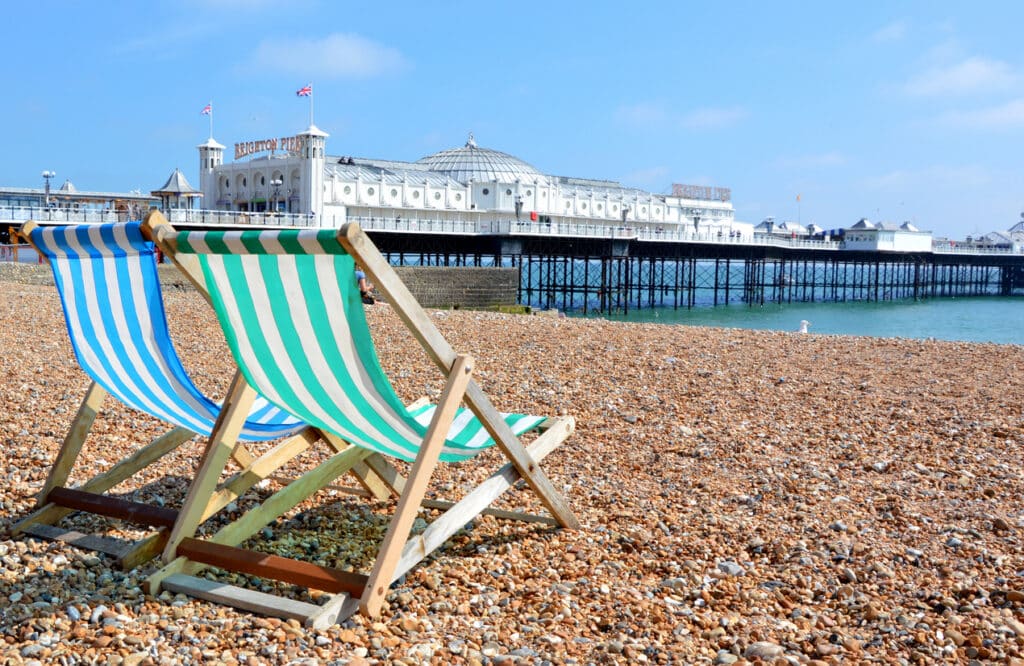Portugal’s sunny climate, welcoming culture, and affordable lifestyle have made it a top destination for U.S. expats. But what’s the real story behind the Instagram photos? In this guide, we’ll walk you through the practicalities—visa requirements, cost of living, healthcare, housing, cultural integration, and common challenges—so you can make an informed decision about whether Portugal is the right fit for your next adventure.
Visa requirements and residence permits for Americans moving to Portugal
Before you can start living in Portugal as an American, you’ll need to navigate the country’s visa and residency process. Portugal is not part of the U.S. Visa Waiver Program, so Americans can visit for up to 90 days within a 180-day period as tourists. If you plan to stay longer, you’ll need a residence visa.
Popular visa options for U.S. expats include:
- D7 visa (passive income visa): Ideal for retirees or those with stable passive income (like pensions, rental income, or investments). You’ll need to show proof of sufficient funds—currently, about €9,840–€10,440 per year.
- Golden visa: For those investing a significant sum in Portuguese real estate or business. This program is evolving, so check the latest requirements.
The process typically involves:
- Applying for a visa at your nearest Portuguese consulate in the U.S.
- Gathering documents (proof of income, health insurance, criminal background check, etc.).
- Entering Portugal and applying for a residence permit (Autorização de Residência) with SEF (the Portuguese immigration authority).
💡 Pro Tip:
The bureaucracy can be slow and sometimes confusing. Many Americans find it helpful to work with a local immigration lawyer or relocation consultant to smooth the process.
Cost of living comparison: Portugal vs major U.S. cities
One of the biggest draws of living in Portugal as an American is the lower cost of living. But how does it really stack up against life in the U.S.?
- Housing: Rent for a one-bedroom apartment in Lisbon or Porto typically ranges from €900–€1,500/month, while smaller cities and rural areas can be much cheaper. Compare that to New York City or San Francisco, where similar apartments often exceed $3,000/month.
- Groceries and dining: Expect to pay 30–50% less for groceries and restaurant meals than in most major U.S. cities. Fresh produce, bread, and local wine are especially affordable.
- Utilities and transportation: Utilities (electricity, water, internet) usually run €100–€150/month. Public transportation is reliable and inexpensive, with monthly passes in Lisbon costing around €40.
- Healthcare: More on this below, but private health insurance is generally much less expensive than in the U.S.
A comfortable lifestyle for a couple in Lisbon can often be maintained on €2,500–€3,000/month, while the same standard in Los Angeles or Boston might require $6,000 or more.
Healthcare system navigation and insurance options for expats
Portugal’s healthcare system is a major plus for many Americans. The country offers a public system (Serviço Nacional de Saúde, or SNS) that provides affordable, high-quality care to residents.
How it works for expats:
- Once you have legal residency, you can register with the SNS and access public healthcare. Most services are free or require a small co-pay.
- Many expats also choose to purchase private health insurance for faster access to specialists and English-speaking doctors. Plans start as low as €40–€100/month, depending on age and coverage.
Key differences from the U.S.:
- No need to worry about surprise medical bills or high deductibles.
- Prescription medications are heavily subsidized.
- Emergency care is available to everyone, regardless of insurance status.
💡 Pro Tip:
Bring copies of your medical records and prescriptions when you move. If you have ongoing health needs, research local providers in advance.
Housing market realities: Renting and buying property as an American
Finding a home is a big part of living in Portugal as an American. The market has become more competitive in recent years, especially in Lisbon, Porto, and popular coastal towns.
Renting:
- Most rentals are unfurnished, and long-term leases (1+ years) are common.
- Landlords may require a Portuguese guarantor or several months’ rent upfront.
- Online platforms like Idealista and OLX are popular, but scams do exist—always visit properties in person before signing anything.
Buying:
- There are no restrictions on foreigners buying property in Portugal.
- The buying process is straightforward but involves several steps: making an offer, signing a promissory contract, and completing the sale with a notary.
- Property prices have risen, especially in Lisbon and the Algarve, but bargains can still be found in less touristy areas.
Cultural integration and language barriers in daily life
Living in Portugal as an American means embracing a new culture—and sometimes, a new language. While many Portuguese people speak excellent English, especially in cities and tourist areas, learning some Portuguese will make daily life much easier and help you feel more at home.
Cultural highlights:
- The pace of life is slower and more relaxed than in the U.S. Expect long lunches, late dinners, and plenty of time spent with family and friends.
- Bureaucracy can be frustratingly slow, but patience and a sense of humor go a long way.
- The Portuguese are generally warm, welcoming, and proud of their culture. Making an effort to learn the language and customs is appreciated.
Language tips:
- Free or low-cost language classes are available in most cities.
- Apps like Duolingo or Babbel can help you get started.
- Don’t be afraid to make mistakes—locals will usually help you out.
Common challenges and who Portugal might not be right for
While living in Portugal as an American has many upsides, it’s not for everyone. Here are some common challenges to consider:
- Bureaucracy: Paperwork and official processes can be slow and confusing. Patience is essential.
- Job market: Unless you’re retired or working remotely, finding a well-paying job as a foreigner can be tough. Wages are generally lower than in the U.S.
- Language barrier: Outside major cities, English is less widely spoken. Daily tasks like visiting the doctor or dealing with government offices may require some Portuguese.
- Homesickness: Being far from family and familiar comforts can be emotionally challenging, especially during holidays or emergencies.
- Weather: While Portugal is famous for its sunshine, winters can be damp and chilly, especially in older homes without central heating.
💡 Pro Tip:
If you need a fast-paced lifestyle, expect U.S.-style customer service, or aren’t comfortable with ambiguity, Portugal’s laid-back approach may be frustrating. But for those seeking a slower pace, rich culture, and a welcoming community, it can be a wonderful fit.
Ready to make your move? Get expert expat tax help today
Moving to Portugal is an exciting adventure, but navigating U.S. expat taxes and international finances can be overwhelming. At Bright!Tax, we specialize in helping Americans abroad stay compliant and maximize their financial well-being. Let us handle the tax details, so you can focus on enjoying your new life in Portugal.
Frequently Asked Questions
-
What are the tax implications of living in Portugal as an American?
As a U.S. citizen, you must file a U.S. tax return every year, even while living in Portugal. You may also need to file Portuguese tax returns, depending on your residency and income. The U.S.-Portugal tax treaty and credits like the Foreign Earned Income Exclusion can help prevent double taxation.
-
Can I access public healthcare in Portugal as an American expat?
Yes, once you have legal residency, you can register for Portugal’s public healthcare system (SNS). Many expats also choose private insurance for additional coverage and faster service.
-
Is it easy to find English-speaking doctors and services in Portugal?
In major cities and expat hubs, many doctors and service providers speak English. In smaller towns, some Portuguese may be necessary, but help is usually available.
-
How much money do I need to live comfortably in Portugal as an American?
Most expats find that €2,500–€3,000/month is sufficient for a comfortable lifestyle in Lisbon or Porto. Costs are lower in smaller towns.
-
What’s the process for renting or buying property in Portugal as an American?
Americans can rent or buy property without restrictions. Renting usually requires a long-term lease and upfront payments. Buying involves legal steps and fees—working with a local agent is recommended.

 Connect on LinkedIn
Connect on LinkedIn

